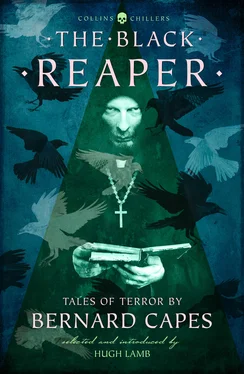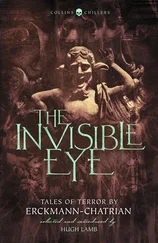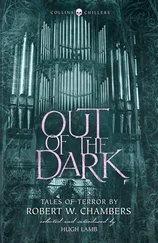He had earned enough of a reputation to merit an obituary in The Times on 4 November 1918. It called him a ‘busy writer, and always a readable one … as he grew older, his style mellowed, for gifted as he was he took some time to find himself’; then added, in typically sniffy fashion, ‘Nor were his The Fabulists , a collection of eerie tales, unworthy of him.’ This fastidious approach to tales of terror is very familiar, even now; Capes probably had to bear his share of literary snobbery in his lifetime. Ghost stories are always treated as a poor relation by literary thinkers, although heaven knows why – they are one of the longest surviving branches of literature.
Capes received a less snooty obituary from The New Witness , which called him ‘one of our most brilliant contributors’. It said of him that ‘He had a very real genius for the supernatural, his ghost stories are among the best in the language. He had an eerie gift for touching on the very quick of horror and never spoilt a supernatural situation by the suggestion of materialism.’
Capes had also earned the enthusiasm of G.K. Chesterton, who wrote an introduction for Capes’s posthumous The Skeleton Key (a fine detective novel). Chesterton said of Capes; ‘It may seem a paradox to say that he was insufficiently appreciated because he did popular things well. But it is true to say that he always gave a touch of distinction to a detective story or a tale of adventure; and so gave it where it was not valued, because it was not expected.’ Chesterton obviously knew about the sniffy tones of the day as well. He praised Capes’s ‘technical liberality of writing a penny-dreadful so as to make it worth a pound. In his short stories … he did indeed permit himself to be poetic in a more direct and serious fashion.’ And it is those stories which concern us now.
Capes’s imagination soared. He imagined the moon being the repository of lost souls (‘The Moon Stricken’); the soul of a dead glassblower trapped in a bottle and released to terrorise a foolish investigator (‘The Green Bottle’); a smuggler brought down by the man whose death he caused twenty years earlier (‘Dark Dignum’); a werewolf priest in a grisly variation of ‘Little Red Riding Hood’ (‘The Thing in the Forest’); a prison cell haunted by a dead man who makes the dust swirl constantly (‘An Eddy on the Floor’); a suicide returning to teach his ne’er-do-well nephew a grisly lesson (‘The Closed Door’); and a wicked ancestor who steps down from his portrait to give visitors a guided tour (‘A Queer Cicerone’). He ranged from Napoleonic terrors to haunted typewriters; from marble hands which come to life to plague-stricken villagers haunted by a scythe-wielding ghost; from werewolves to the Wandering Jew. Bernard Capes rang the changes on tales of terror like very few writers of his day. It makes his neglect all the more surprising.
Of the tales in this book, nearly all appeared first in magazine form and were then collected into various books of short stories as Capes published them. Those from The Fabulists need some explanation. The shorter stories first appeared in The New Witness , and were tales told by four young men who decide to journey from village to village telling stories to earn their keep. They merely narrate the tales, without necessarily appearing in them; but the stories all bear the marks of a camp-fire yarn. As for the others, they stand up superbly on their own. Capes could hit the mark better than most.
We must never forget the sardonic angel on Capes’s shoulder. When I reprinted a couple of these stories in Tales from a Gas-Lit Graveyard in 1979, I sent a copy of the volume to Robert Aickman, one of our foremost ghost story writers (his grandfather, Richard Marsh, was in the book as well). Aickman wrote back, commenting on the stories, and said this of Capes: ‘His stories reveal the author’s desperate frustration, an all too familiar property of the trade. He also uses words in a curious way at many places; as if he were writing under the influence of drink, as perhaps he was, when one considers his basic attitude.’
Intrigued by Aickman’s insight (I had not told him of Capes’s long record of failure), I asked him to elaborate for the benefit of this book when it finally appeared. His reply deserves reprinting:
Consider the opening paragraph and second paragraph in ‘The Green Bottle’. When Capes describes himself as ‘happening to be grinding his literary barrel organ – always adaptable to the popular need’, this is not character drawing but an expression of rueful awareness that the words are largely true. Similarly, the contempt expressed for Sewell is partly self contempt and partly contempt for the awful people one has to mix with in the awful trade of popular authorship. Thus again with the first paragraph of ‘An Eddy on the Floor’; these words do not even pretend to be in character. They are Capes speaking. No man who sees himself as even reasonably content or fulfilled writes like this. The entire atmosphere is saturated with disappointment, disillusionment, and despair. None of this means that Capes’s stories are without good qualities. Still less does it mean that Capes was necessarily justified in his apparent estimate of his powers and deserts. Least of all does it mean that you have to accept a word I say on the subject.
Anyone who knew Robert Aickman would accept his word on this like a shot. Aickman did his fair share of research into ghost stories and knew his authors well.
If you examine Capes’s tales, you won’t find any conventional heroes or conventional happy endings. His protagonists wander into situations or are obliged to take action almost by default, while suffering humanity gets short shrift as well. He also seems to reserve harsh fates for gentlemen of the press – consider ‘The Green Bottle’, ‘An Eddy on the Floor’, or ‘William Tyrwhitt’s “Copy”’. Capes hardly needed to populate the moon with lost souls – he sends them wandering blindly through the pages of his stories down here on earth.
Perhaps it is his basic pessimism that gives Capes’s stories their undoubted power. Few authors from the time conjured up such dark canvasses as he paints in ‘A Gallows-bird’ or ‘The Sword of Corporal Lacoste’. However, this dark vision never seemed to extend to his novels, which are often lighter, less grim, historical follies. The Pot of Basil (1913), for instance, is an airy, whimsical piece about eighteenth century court life in Italy – a long way from the grinding horror of ‘A Gallows-bird’. And the lovers in The Story of Fifine (1914) are in a world far removed from the blossoming courtship we see outlined in ‘The Accursed Cordonnier’.
Capes soon passed into the neglect so common in this field. After The Skeleton Key was published in 1919, nothing more appeared in Britain until a couple of re-issues in 1928 and 1929 – and then that was it. His neglect over the years is strange indeed, especially when other authors from the same era are reprinted mercilessly.
I hope that this new edition of The Black Reaper will bring Bernard Capes back into the eye of the ghost story enthusiast, and a wider public. He deserves reprinting and a second chance. We must hope that his usual bad luck died with him.
Hugh Lamb
Sutton, Surrey
February 2017
Taken from the Q— Register of Local Events,
as Compiled from Authentic Narratives
Now I am to tell you of a thing that befell in the year 1665 of the Great Plague, when the hearts of certain amongst men, grown callous in wickedness upon that rebound from an inhuman austerity, were opened to the vision of a terror that moved and spoke not in the silent places of the fields. Forasmuch as, however, in the recovery from delirium a patient may marvel over the incredulity of neighbours who refuse to give credence to the presentments that have been ipso facto to him, so, the nation being sound again, and its constitution hale, I expect little but a laugh for my piety in relating of the following incident; which, nevertheless, is as essential true as that he who shall look through the knot-hole in the plank of a coffin shall acquire the evil eye.
Читать дальше












